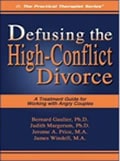
|
Difficult as divorce is for the adults, it’s equally or more difficult for the children. No matter what age children are when their parents divorce, they’ll experience distress (Wallerstein and Lewis, 1998; Buchanan and Heiges, 2001; McIntosh, 2003). Divorce forces many changes in children’s life — changes over which they usually have no control and very little understanding. The changes that may most affect kids usually have to do with the daily routines and the structures that once brought order and consistency to their lives: coming home from school to the place that was once considered home, the school containing all their friends, the family finances that provide security, the amount of time they spend with each parent, and the caretakers who watch them while their parents are working. Will these changes bring about serious adjustment problems in a particular child? Or will the child make a fairly smooth and rapid transition to new life circumstances? Those questions are best answered when a myriad of factors are considered, including the child’s temperament, personality and age, relationship with each parent, and ability to understand the divorce’s impact on her life. Furthermore, how a particular child reacts to a divorce will depend, in large order, on how her parents are coping with the divorce. Show us a couple who has worked out an amiable parting of the marital ways and are getting on with their lives, and we’ll show you two parents whose children are probably adjusting just fine. The more reactive the parents have been during the divorce, however, the more reactive children of all ages are likely to be. When the worst case scenario occurs, that is, when parents are engaged in a prolonged, persistent battle over various issues, the more distressed and upset the children will be. More Articles from Defusing the High-Conflict Divorce: |












Add A Comment